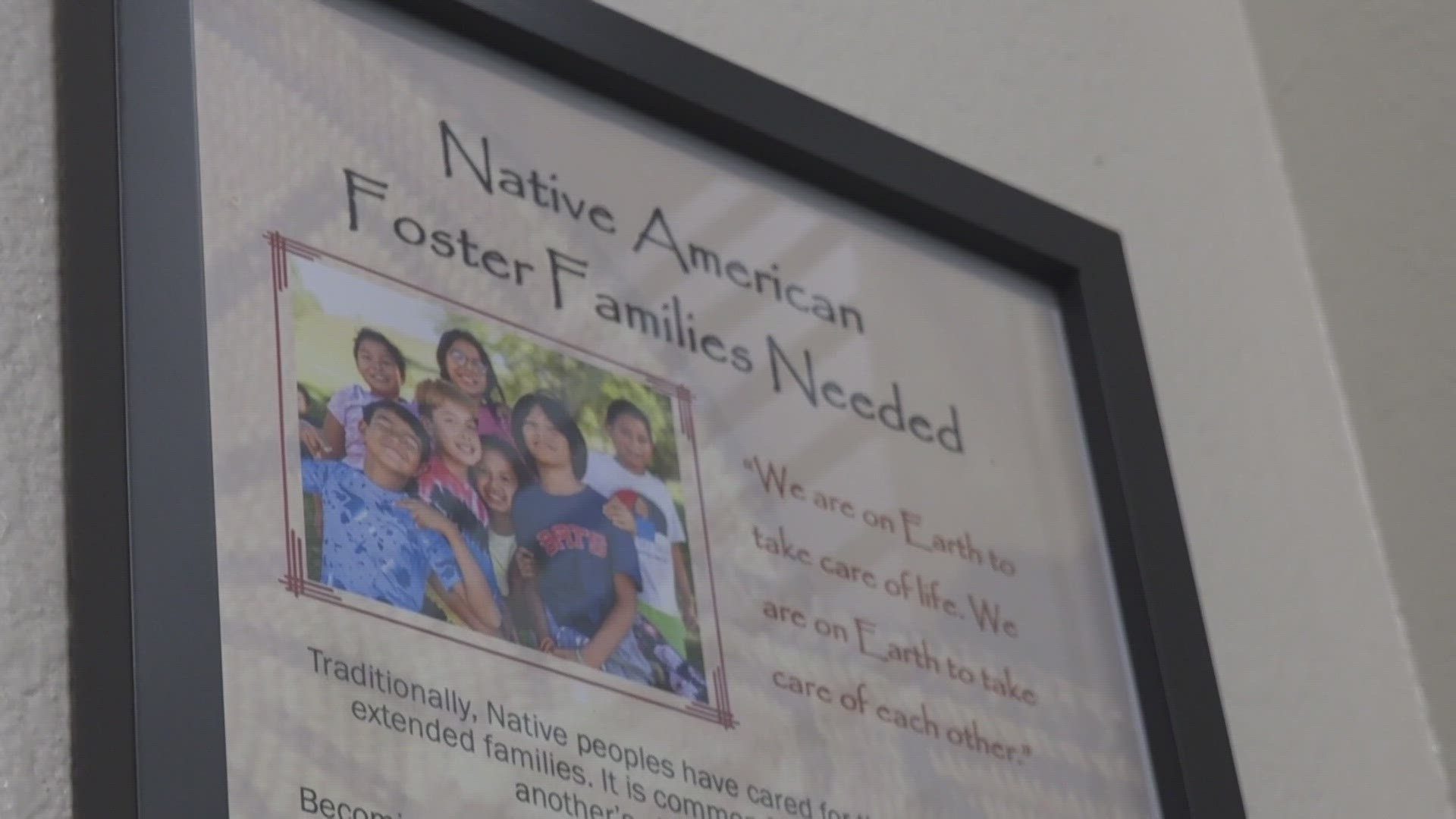ARIZONA, USA — There are organized toys in the main living space next to the high chair, which is clean and ready to use. The bedroom beds are made, and the rooms are filled with stuffed animals. The house is clean and filled with the five kids Stephanie and Tim Linklater are caring for.
It is an extraordinary gesture of kindness. But there's a problem: There are not enough people like the Linklaters. There are only 10 people like them right now.
That's the number of people authorized to foster children by the Salt River-Pima-Maricopa Indian Community.
There’s been a continual shortage of foster homes in the United States. But, the need is even more challenging to fill on the Salt River Pima-Maricopa Indian Community according to Norma Hernandez, the licensing manager for the community.
Right now about 100 kids from the Salt River Pima-Maricopa Indian Community are in out-of-home placements, Hernandez said.
“Half of those children are stateside, unfortunately. But we're blessed to have those families. They're not Native American,” Hernandez said. “And that's why we want to recruit other Native American families that live stateside that are open and willing to assist us with our indigenous population.”
While Hernandez said she does have almost three dozen kids in kinship placements, she needs more foster families.
Hernandez said she’s hoping for an additional 25 families that could become licensed foster families through the Salt River Pima-Maricopa Indian Community. Specifically, she’s looking for families who can be sensitive to the cultural needs of the kids who are in the foster system.
“Somebody that's willing to learn the language,” Hernandez said. “We provide so many resources to our non-native families so that they're able to teach the kids basic things like their colors, their numbers, how to greet. We need families that are sensitive to the way our children eat.”
Stephanie and Tim Linklater became foster parents through the community a few years ago after they were looking to adopt.
“We sought out the you know, the reservation, where I'm from. And then we learned about foster care to the tribe,” said Stephanie Linklater, who’s registered and affiliated with the Gila River Indian Community.
Over their time as a foster family, the Linklaters said they’ve had 10 kids placed in their home, in addition to about 20 kids they’ve had for a respite placement. Respite placement is when a foster family temporarily cares for a child for their main foster parents.
“One of the greatest things that I think we’ve been able to experience is seeing the change that happens in the kids,” Tim said.
Through their time as foster parents, the Linklaters did adopt a son of their own. But they’ve continued to see the need and have continued to foster.
“This generation - these kids - the culture is getting lost… And I’m very passionate about this - that needs to be restored,” Stephanie said. Because they lose their culture, we lose our culture, when we're in trauma, when we're in situations that we didn't even have no control over.”
The resources and events through the Salt River Pima-Maricopa Indian Community’s program have been part of what the Linklaters have incorporated with the foster kids they’ve had placed with them.
“I show them what I knew, and what I didn’t know we were going to learn together,” Stephanie Linklater said, “And that’s when I relied on the tribe and then they have people to show us and they have people, you know, bringing all these programs and these elders to come in and teach us our language.”
Still, they know many more kids need a family.
“If you are seeing the need, then you’re probably being called to come and, you know, be a part of this, to be a part of our families,” Stephanie Linklater said.
“You can do it,” Tim Linklater said. “All of the things that you might think are reasons why you can’t - whether you don't think you have the resources, the time, you don't have the wherewithal to do it - you can, there's people that will join with you to help you to do it.”
Those who do feel called to seek out the next steps begin with an orientation by emailing Norma Hernandez, the licensing manager at norma.hernandez2@srpmic-nsn.gov or calling 480-362-5645. From there, Hernandez said the process continues with paperwork, a background check, a class to complete and a home study before licensing.
“Each family can make a difference,” Hernandez said.
Up to Speed
Catch up on the latest news and stories on the 12News YouTube channel. Subscribe today.

